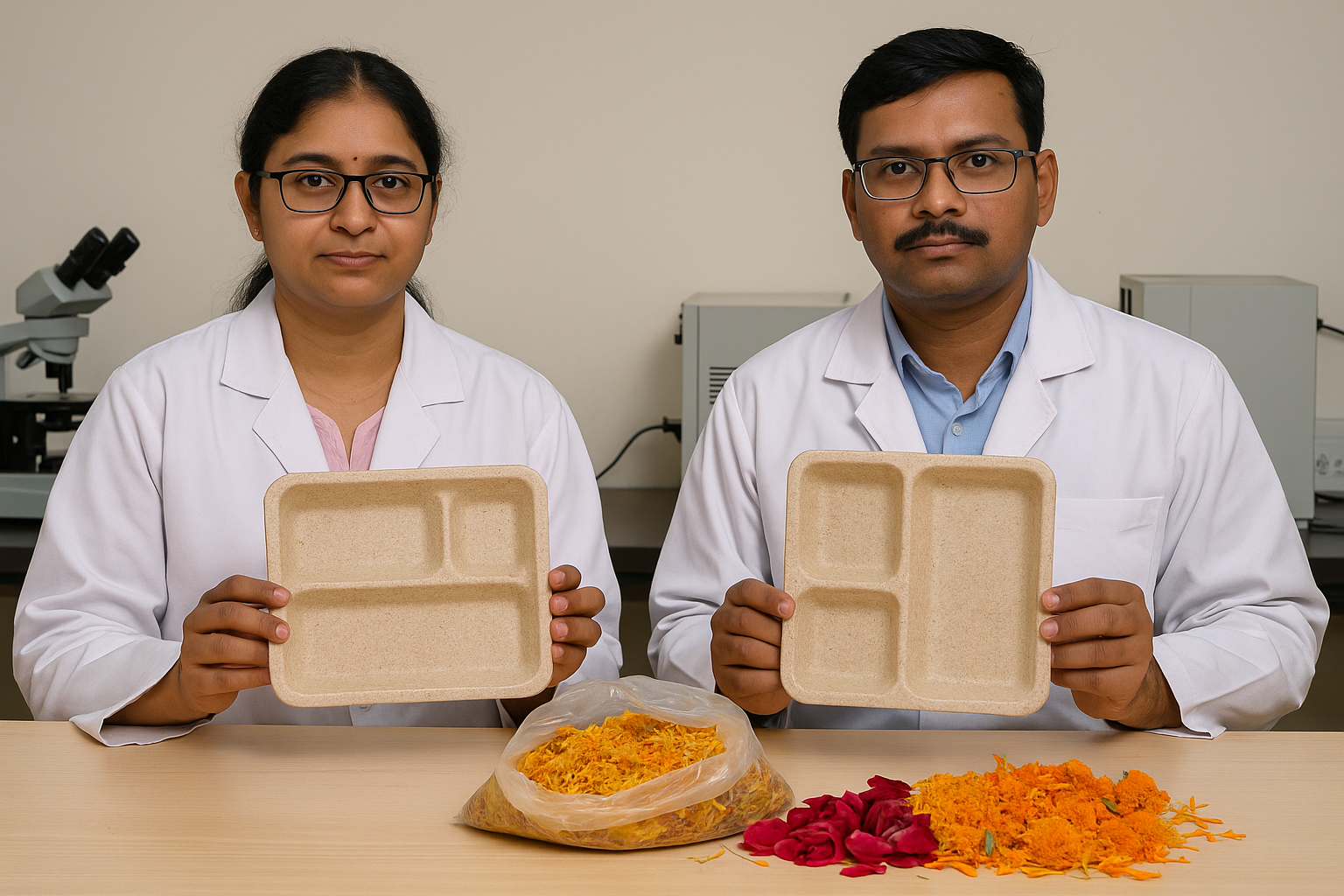Summary Points:
- Scientists at NIT Rourkela patent biodegradable packaging material made from flower waste.
- Offers eco-friendly alternative to plastic using discarded temple flowers.
- Aims to reduce temple waste and environmental pollution.
- Developed by Department of Life Science and Chemical Engineering researchers.
- Material is water-resistant, strong, and decomposes naturally in 30–45 days.
- Potential application in food delivery, retail, and FMCG packaging.
Turning Waste Into Worth: NIT Rourkela’s Green Innovation
Every day, temples across India dispose of tons of used flowers. Most end up in landfills or water bodies, polluting ecosystems. But what if those same flowers could help fight plastic pollution?
That’s exactly what a team of researchers from NIT Rourkela has achieved.
They’ve patented a biodegradable packaging material made from discarded temple flowers—creating a low-cost, sustainable replacement for plastic.
ALSO READ: PM Modi at WAVES Summit 2025: “Mein Insaan Ko Robot Nahi Banne Dunga” – Calls for Human-Centric AI Future
Science Behind the Solution
The project was led by the Department of Life Science and Chemical Engineering. Researchers collected flower waste—mainly marigold and rose petals—from local temples. These petals were then processed, mixed with natural binders, and molded into packaging sheets.
Key features of the packaging:
- Fully biodegradable within 30–45 days
- Water-resistant and durable
- Cost-effective, using local waste and simple processing
- Free from synthetic chemicals or plastics
The team confirmed that the material could be used for food containers, shopping bags, and product wraps.
Addressing Two Environmental Problems in One
The innovation tackles two major issues at once:
- Temple Flower Waste: India generates over 8 million tonnes of flower waste annually, much of it from religious offerings. Most ends up dumped in rivers, contributing to water pollution.
- Plastic Pollution: India produces over 3.4 million tonnes of plastic waste every year, and nearly 40% of it remains uncollected.
By converting discarded flowers into packaging material, the NIT team offers a circular economy model that’s both scalable and eco-friendly.
ALSO READ: India’s Startup Crash: Over 28,000 Shut Down in Just Two Years
Case Study: Bhubaneswar Temple Partnership
As part of their pilot, the team collaborated with a prominent temple in Bhubaneswar. Over two weeks, they collected 80 kg of flower waste and produced 250 sheets of eco-packaging material.
These were tested in local food outlets for moisture resistance and structural durability.
Feedback from vendors was overwhelmingly positive. The packaging kept food safe, did not leak, and biodegraded completely within a month—without any unpleasant odor.
Next Steps: Commercialization and Community Impact
The researchers are now in talks with eco-conscious FMCG companies and government-backed rural innovation programs to scale up production.
They envision creating micro-industries around temples and religious centers, where local women and youth can be trained to convert floral waste into usable products.
If successful, this model can:
- Generate local employment
- Reduce temple waste
- Offer sustainable packaging to businesses
- Support India’s zero-plastic goals
India’s Packaging Problem Needs More Solutions Like This
With global bans on single-use plastics growing stronger, alternatives like this flower-based packaging could help India lead the green packaging revolution.
Will more institutions now follow suit and look to nature for answers?
The NIT Rourkela innovation reminds us: Sometimes, the most powerful solutions start with a petal.



